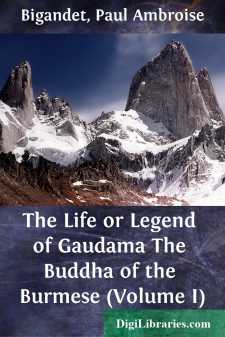Categories
- Antiques & Collectibles 13
- Architecture 36
- Art 48
- Bibles 22
- Biography & Autobiography 813
- Body, Mind & Spirit 142
- Business & Economics 28
- Children's Books 17
- Children's Fiction 14
- Computers 4
- Cooking 94
- Crafts & Hobbies 4
- Drama 346
- Education 46
- Family & Relationships 57
- Fiction 11829
- Games 19
- Gardening 17
- Health & Fitness 34
- History 1377
- House & Home 1
- Humor 147
- Juvenile Fiction 1873
- Juvenile Nonfiction 202
- Language Arts & Disciplines 88
- Law 16
- Literary Collections 686
- Literary Criticism 179
- Mathematics 13
- Medical 41
- Music 40
- Nature 179
- Non-Classifiable 1768
- Performing Arts 7
- Periodicals 1453
- Philosophy 64
- Photography 2
- Poetry 896
- Political Science 203
- Psychology 42
- Reference 154
- Religion 513
- Science 126
- Self-Help 84
- Social Science 81
- Sports & Recreation 34
- Study Aids 3
- Technology & Engineering 59
- Transportation 23
- Travel 463
- True Crime 29
The Life or Legend of Gaudama The Buddha of the Burmese (Volume I)
Description:
Excerpt
Whether Buddhism be viewed in its extent and diffusion, or in the complex nature of its doctrines, it claims the serious attention of every inquiring mind.
In our own days it is, under different forms, the creed prevailing in Nepaul, Thibet, Mongolia, Corea, China, the Japanese Archipelago, Anam, Cambodia, Siam, the Shan States, Burmah, Arracan, and Ceylon. Its sway extends over nearly one-fourth of the human race.
Though based upon capital and revolting errors, Buddhism teaches a surprising number of the finest precepts and purest moral truths. From the abyss of its almost unfathomable darkness it sends forth rays of the brightest hue.
To the reflecting mind, the study of this religious system becomes the study of the history of one of the greatest religious enterprises that has ever been undertaken to elevate our nature above its low level, by uprooting the passions of the heart and dispelling the errors of the mind. A serious observer sees at a glance the dark and humiliating picture of the sad and barren results of the greatest and mightiest efforts of human wisdom, in its endeavours to find out the real cause of all human miseries, and to provide the remedies to cure the moral distempers to which our nature is subject. The fact of man's wretched and fallen condition was clearly perceived by the Buddhist philosopher, but he failed in his attempts to help man out of the difficulties which encompass him in all directions, and to bring him back to the path of truth and salvation. The efforts begun on the banks of the Ganges at an early period, and carried on with the greatest ardour and perseverance, have proved as abortive as those made at a later period throughout Greece and Italy by the greatest and brightest geniuses of antiquity. What a grand and irresistible demonstration both of the absolute inability of man to rescue from evil and attain good, and of the indispensable necessity of divine interference to help him in accomplishing that twofold achievement!
It may be said in favour of Buddhism, that no philosophico-religious system has ever upheld, to an equal degree, the notions of a saviour and deliverer, and of the necessity of his mission for procuring the salvation, in a Buddhist sense, of man. The role of Buddha, from beginning to end, is that of a deliverer, who preaches a law designed to secure to man deliverance from all the miseries under which he is labouring. But by an inexplicable and deplorable eccentricity, the pretended saviour, after having taught man the way to deliver himself from the tyranny of his passions, only leads him, after all, into the bottomless gulf of total annihilation.
Buddhism, such as we find it in Burmah, appears to have retained, to a great extent, its original character and primitive genuineness, exhibiting, as it does, the most correct forms and features of that Protean creed. At the epoch the Burmans left the northern valleys and settled in the country they now inhabit, they were a half-civilised Mongolian tribe, with no kind of worship, except a sort of geniolatry, much similar to what we see now existing among the various tribes bordering on Burmah. They were in the same condition when the first Buddhist missionaries arrived among them....


